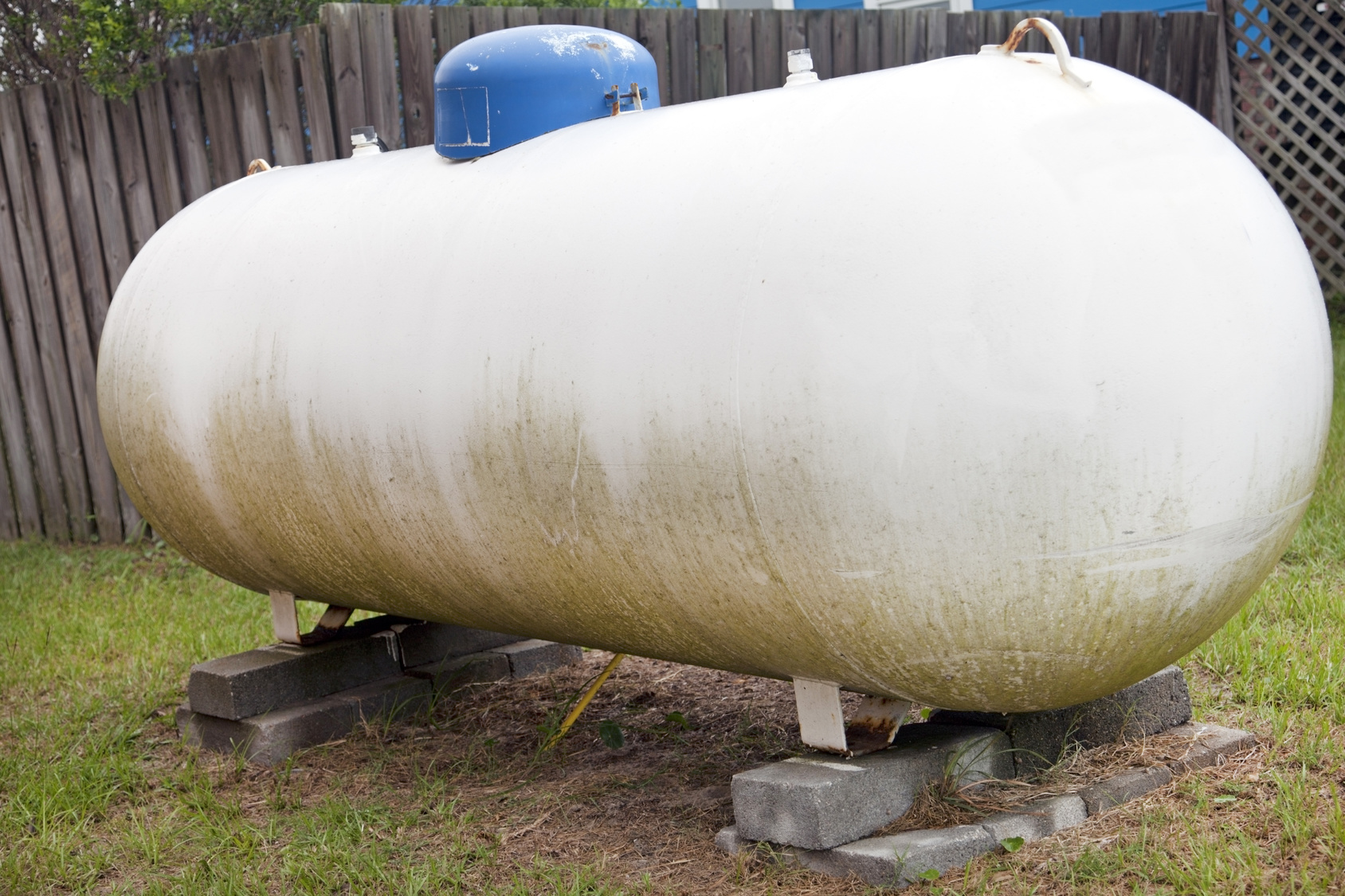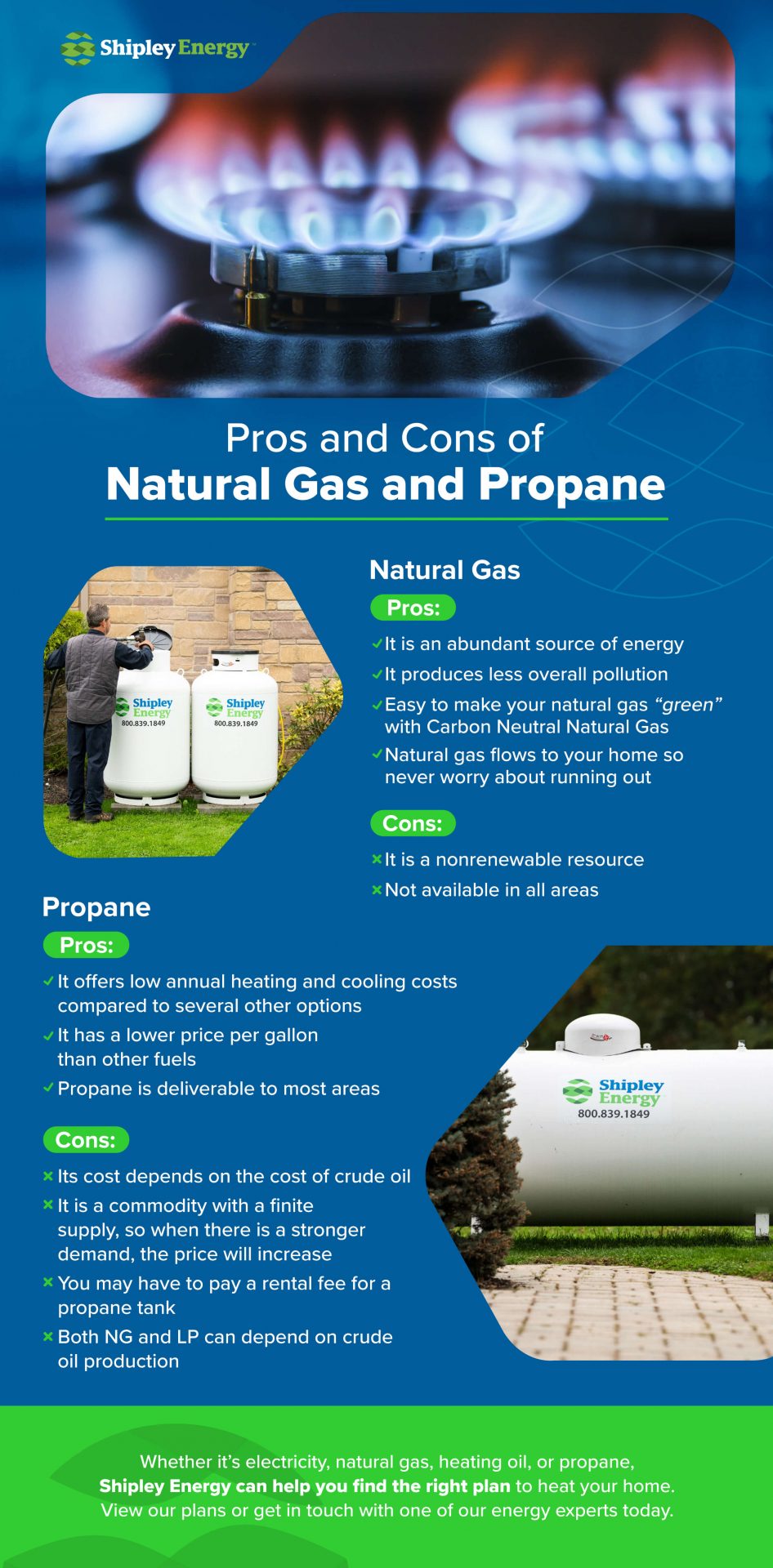One disadvantage of propane heat is its high upfront costs and potential rental fees associated with it. Additionally, propane tends to produce fewer BTUs per gallon compared to oil-based heating systems, leading to higher consumption rates and potentially higher costs for heating your home.
Despite these drawbacks, propane heating systems offer advantages such as safety and clean burning, making them a popular choice for many homeowners. When considering switching to propane heat, it’s important to weigh the pros and cons to make an informed decision about the best heating option for your home.
By understanding the potential disadvantages and benefits of propane heat, you can make a choice that aligns with your budget and heating needs.

Risks And Challenges
Risks and Challenges: When considering propane heat, it’s crucial to be aware of the risks and challenges associated with this heating option.
Low Btu Output
Propane heating systems generally have a lower BTU output compared to other heating sources, impacting their efficiency in generating heat for your home.
High Upfront Costs
The initial investment required for propane heating setups can be significant, making it a substantial financial commitment for homeowners.
Delivery Dependence
One of the challenges of propane heat is the reliance on delivery services for fuel supply, leading to potential disruptions in heating availability.

Credit: www.conklinoilandpropane.com
Safety Concerns
Combustibility
Propane is highly combustible and requires proper ventilation and handling.
Propane Poisoning
Inadequate ventilation can lead to propane poisoning, causing symptoms like dizziness and nausea.
Operational Issues
When it comes to the operational aspects of propane heating systems, there are several challenges that homeowners may encounter. From maintenance issues to weather dependency, understanding the drawbacks can help in making an informed decision.
Maintenance Challenges
Propane heating systems often come with maintenance challenges, requiring regular upkeep and professional inspections to ensure optimal functionality. This can involve cleaning, tuning, and potential repairs, which can incur additional costs for homeowners.
Weather Dependency
Another operational issue with propane heating is its dependency on weather conditions. Extremely cold temperatures can impact the efficiency of propane, potentially leading to heating fluctuations and increased fuel consumption.

Credit: www.shipleyenergy.com
Comparison To Alternative Heating Sources
Propane heating has some drawbacks compared to alternative heating sources. It produces fewer BTUs per gallon, leading to higher fuel consumption and costs. The initial purchase of propane-burning equipment can be more expensive, and safety precautions are necessary due to its combustible nature.
Propane heat is a popular choice for many homeowners due to its efficiency and versatility. However, it is important to consider the disadvantages of propane heat when compared to alternative heating sources. In this section, we will explore the comparative cost analysis and environmental impact of propane heat.Comparative Cost Analysis
When it comes to heating your home, cost is often a significant factor to consider. Propane heat may not always be the most cost-effective option compared to alternative heating sources. Here is a breakdown of the comparative cost analysis:| Heating Source | Initial Cost | Operating Cost | Installation Cost |
|---|---|---|---|
| Propane | High | Variable | High |
| Natural Gas | Low | Low | Low |
| Electricity | Low | High | Low |
Environmental Impact
In addition to cost, the environmental impact of heating sources is another crucial aspect to consider. Propane heat may not be the most environmentally friendly option when compared to alternative heating sources. Here are some factors to consider regarding the environmental impact:- Propane is a fossil fuel, and its combustion releases greenhouse gases into the atmosphere, contributing to climate change.
- Processing and extracting propane can have negative effects on air and water quality.
- While propane is considered a clean-burning fuel, it still produces emissions that can contribute to air pollution.
- Alternative heating sources like geothermal heat pumps or solar power provide more sustainable options with reduced environmental impact.
Mitigation Strategies
While there are several disadvantages to using propane heat, there are also effective mitigation strategies that can help address the associated challenges. By implementing these strategies, homeowners can make the most out of their propane heating systems. In this section, we will explore two key strategies: addressing safety risks and improving efficiency.
Addressing Safety Risks
When it comes to using propane as a heating fuel, safety should always be a top priority. Propane is a combustible gas, which means proper precautions must be taken to ensure safe operation of the equipment. Here are a few important safety measures to consider:
- Choose propane equipment that meets industry safety standards and carries the Underwriter’s Laboratory (UL) label.
- Regularly inspect and maintain your propane heating system to identify any potential safety hazards.
- Ensure proper ventilation in the area where the propane equipment is installed to prevent the buildup of carbon monoxide.
- Install carbon monoxide detectors in your home to provide an early warning of potential gas leaks.
- Train yourself and your family members on how to safely operate and shut off the propane heating system in case of an emergency.
Improving Efficiency
Another important aspect to consider when using propane heat is improving efficiency. By maximizing the efficiency of your propane heating system, you can reduce energy waste and potentially lower your heating costs. Here are a few strategies to help improve efficiency:
- Ensure proper insulation in your home to minimize heat loss and maintain a comfortable indoor temperature.
- Regularly clean and maintain your propane heating system to improve its overall efficiency.
- Consider upgrading to a more energy-efficient propane furnace or boiler that meets the ENERGY STAR® certification.
- Install programmable thermostats to optimize temperature settings and reduce energy consumption.
- Seal any air leaks in your home to prevent heat from escaping and cold air from entering.
By implementing these mitigation strategies, homeowners can address the safety risks associated with propane heat and improve the overall efficiency of their heating systems. With proper precautions and maintenance, propane heat can be a safe and reliable choice for keeping your home warm during the colder months.

Credit: todayshomeowner.com
Frequently Asked Questions On Disadvantages Of Propane Heat
What Is The Problem With Propane Heating?
Problems with propane heating may stem from thermostat issues, air filter clogs, or belt and blower motor malfunctions. If unresolved, seek professional furnace repair to address issues like worn belts or motor lubrication needs.
What Are 2 Disadvantages Of Propane?
Two disadvantages of propane are lower heat output compared to oil and higher upfront equipment costs.
Is Propane Heat A Good Idea?
Propane heat is a good idea because it burns clean, is safe, and can power your entire home. However, it may have higher upfront costs and produce fewer BTUs per gallon compared to oil. With proper maintenance, it can be a reliable and efficient heating option.
Are Propane Heaters Unhealthy?
Propane heaters are safe when used properly. Choose a heater that’s the right size for your space and has the UL label.
Q: What Are The Disadvantages Of Using Propane For Heating?
A: Propane produces fewer BTUs per gallon than oil heating and the equipment costs more than oil-based systems. Precautions are needed to operate propane equipment safely.
Conclusion
While propane heat offers some benefits, such as safety and clean burning, there are several significant drawbacks to consider. These include lower BTUs per gallon than oil heating, higher upfront costs, and the need for safety precautions. It’s essential for homeowners to weigh these disadvantages carefully before opting for propane heating systems in their homes.